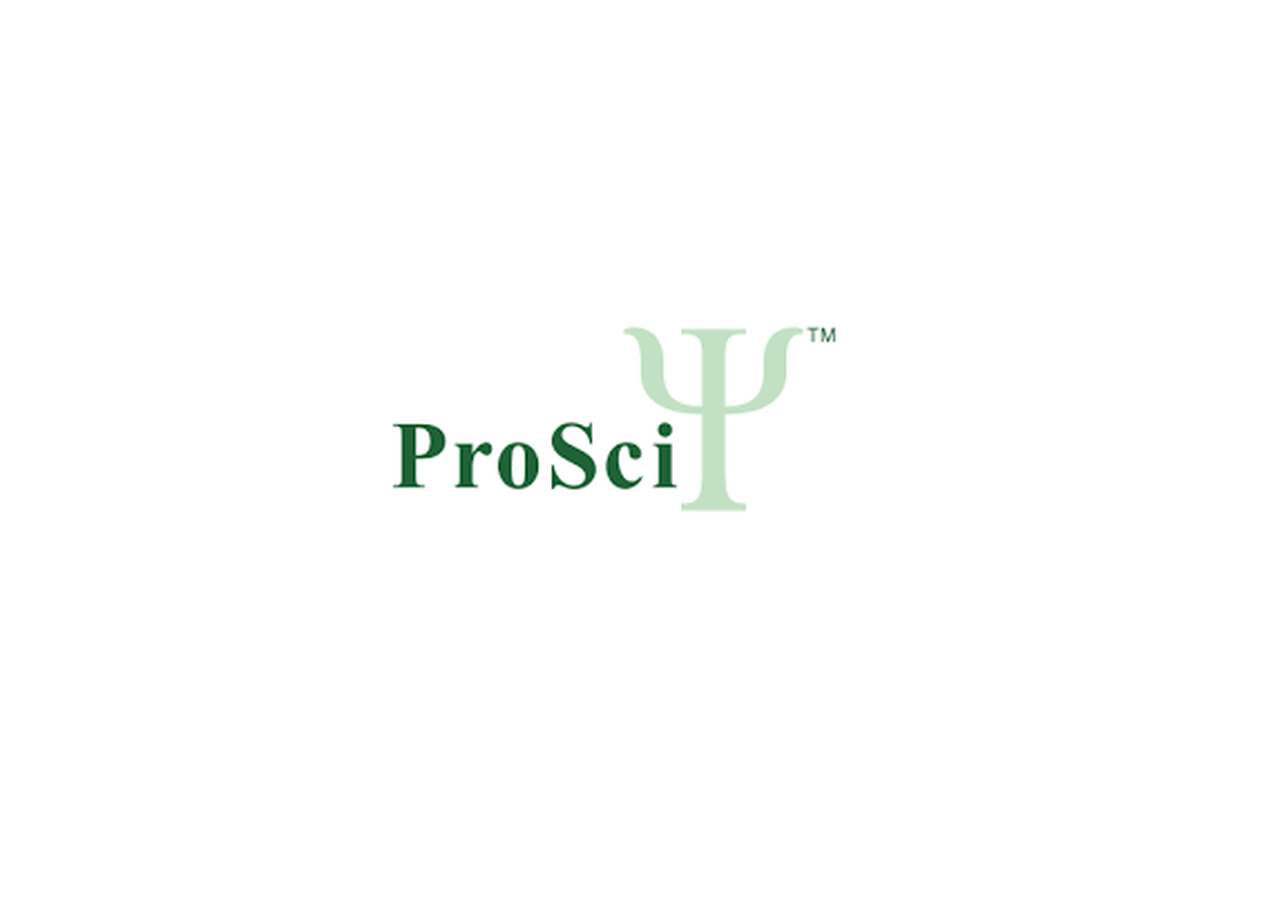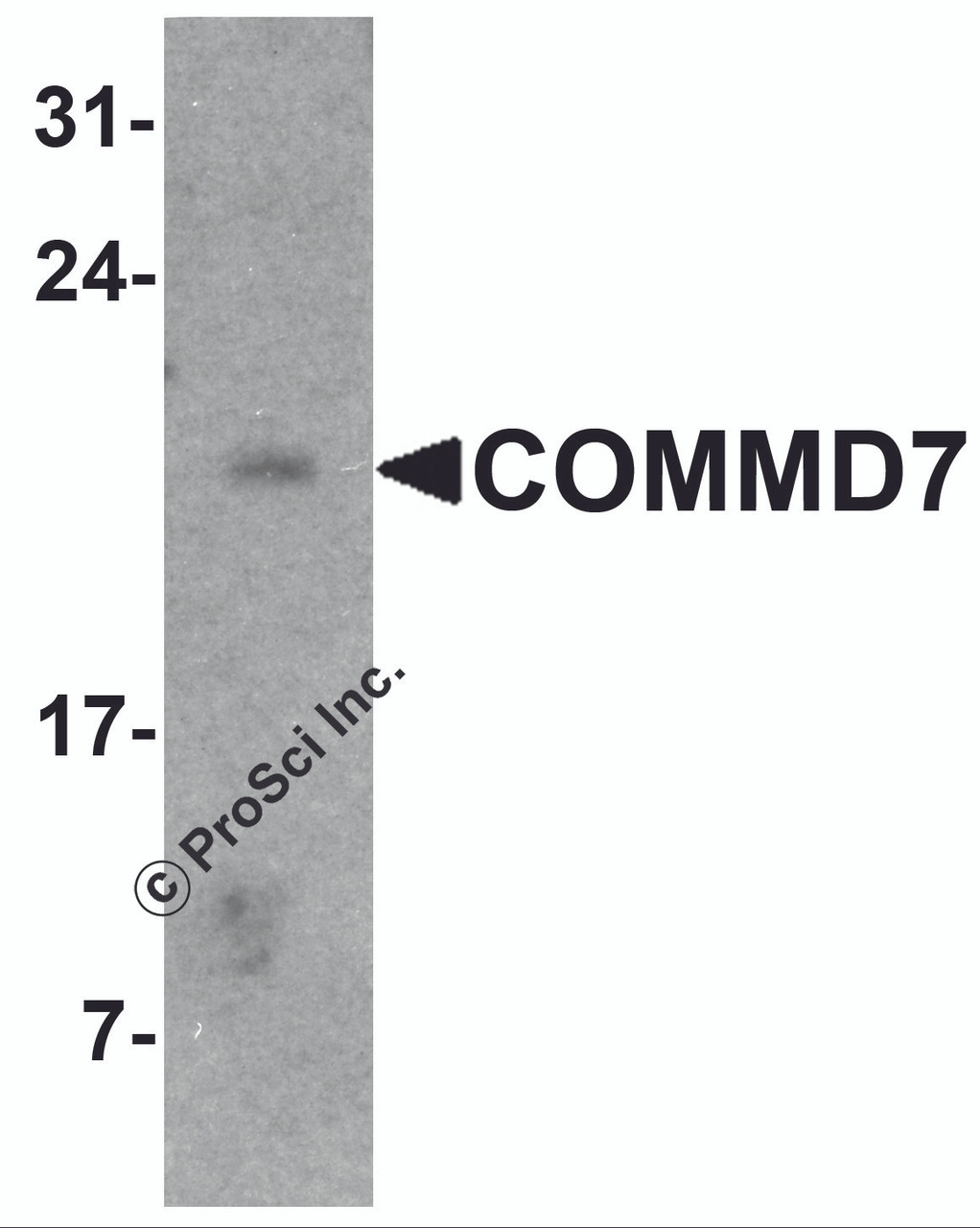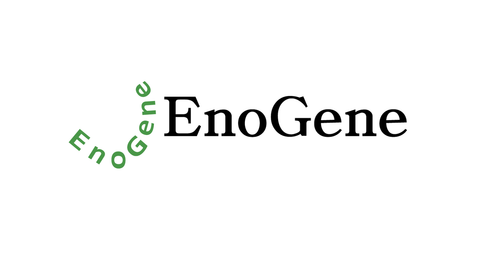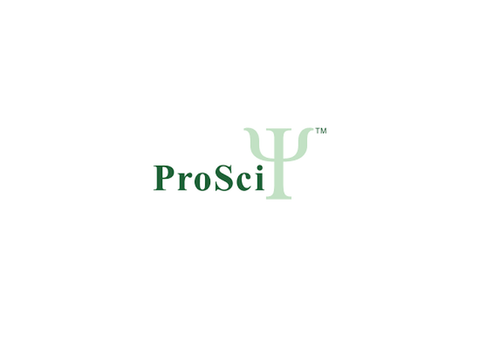Product Description
COMMD7 Antibody | 7541 | ProSci
Host: Rabbit
Reactivity: Human, Mouse, Rat
Homology: Predicted species reactivity based on immunogen sequence: Bovine: (95%)
Immunogen: COMMD7 antibody was raised against a 19 amino acid peptide near the center of human COMMD7.
The immunogen is located within amino acids 90 - 140 of COMMD7.
Research Area: Cancer, Cell Cycle
Tested Application: E, WB, IHC-P, IF
Application: COMMD7 antibody can be used for detection of COMMD7 by Western blot at 1 - 2 μg/ml. Antibody can also be used for Immunohistochemistry starting at 5 μg/mL. For immunofluorescence start at 20 μg/mL.
Antibody validated: Western Blot in mouse samples; Immunohistochemistry in human samples and Immunofluorescence in human samples. All other applications and species not yet tested.
Specificiy: COMMD7 antibody is human, mouse and rat reactive. Multiple transcript variants encoding different isoforms have been found for COMMD7.
Positive Control 1: Cat. No. 1406 - Mouse Spleen Tissue Lysate
Positive Control 2: Cat. No. 10-901 - Human Spleen Tissue Slide
Positive Control 3: N/A
Positive Control 4: N/A
Positive Control 5: N/A
Positive Control 6: N/A
Molecular Weight: Predicted: 22 kDa
Observed: 21 kDa
Validation: N/A
Isoform: N/A
Purification: COMMD7 antibody is affinity chromatography purified via peptide column.
Clonality: Polyclonal
Clone: N/A
Isotype: IgG
Conjugate: Unconjugated
Physical State: Liquid
Buffer: COMMD7 antibody is supplied in PBS containing 0.02% sodium azide.
Concentration: 1 mg/mL
Storage Condition: COMMD7 antibody can be stored at 4˚C for three months and -20˚C, stable for up to one year.
Alternate Name: COMMD7 Antibody: C20orf92, dJ1085F17.3, C20orf92, COMM domain-containing protein 7
User Note: Optimal dilutions for each application to be determined by the researcher.
BACKGROUND: COMMD7 (COMM domain-containing protein 7) plays a role in the regulation NF-kappaB (1) . It associates with the NF-kB complex and suppresses its transcriptional activity (2) . COMMD7 contains 1 COMM domain and widely expressed with highest expression in lung (3) . COMMD7 is a newly identified gene overexpressed in hepatocellular carcinoma (HCC) (4) . COMMD7 is associated with tumor invasion and poor prognosis by NF-kappaB signaling pathway (4) .
 Euro
Euro
 USD
USD
 British Pound
British Pound
 NULL
NULL












